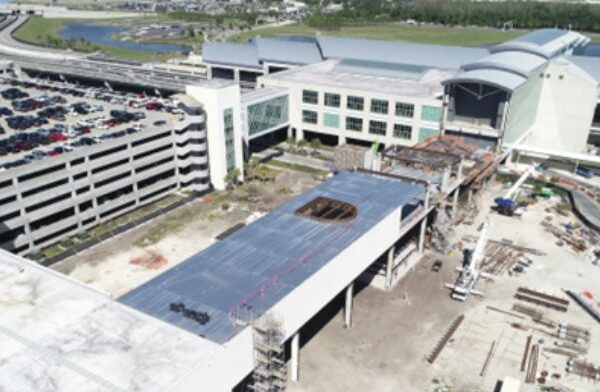


Amadeus, which is best known as an IT provider for the global travel industry, has made its first investment outside the software space, having acquired a minority stake in Caphenia – a German company looking to produce synthesis gas, the feedstock of sustainable aviation fuel (SAF).
Caphenia is currently developing a method to produce synthetic gas from a mixture of biogas, CO2, water and electricity. This could be used to produce a variety of synthetic fuels, with up to a 92% reduction of CO2 emissions compared to fossil fuel. Amadeus’s investment is part of a wider commitment from the company to support the industry on its journey to a more sustainable future and will provide Amadeus with enhanced visibility into the challenges of the SAF sector.
Commenting on its approach to producing SAF, Mark Misselhorn, CEO of Caphenia, said: “Our process is affordable – using one sixth of the electricity needed for alternative SAF production methods – and scalable. We have an ambition to offer large scale production by 2028, aiming to fill the gap between anticipated SAF demand and current supply.”
He added: “The technology of cost-effective, producible SAF means the greatest potential for CO2 savings and an important element, that in combination with others, may help in meeting net zero targets.”
The International Air Transport Association (IATA) has already outlined that SAF has the potential to account for 65% of the reduction in greenhouse gas (GHG) emissions required for the aviation industry to reach net zero by 2050. To reach that goal, SAF production capacity of 449 billion litres annually is estimated to be needed globally. In 2021, SAF production stood at just 125 million litres (or less than 0.1% of the required estimated production capacity).
Caphenia plans to commence production in 2024 and is forecasting to produce 10 million litres of SAF by 2027.
Suzanna Chiu, Head of Ventures at Amadeus, said: “At Amadeus we are committed to supporting the move to sustainable travel. We monitor industry trends and developments to determine the most effective ways we can fulfil this ambition and are delighted to act today with the investment in an innovative SAF company. The transaction represents a step forward in our sustainability strategy, taking the perspective from a different part of the value chain in the industry. As the industry moves toward its goal of reaching net zero by 2050, we are taking concrete steps to accelerate the process.”






